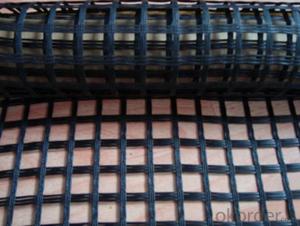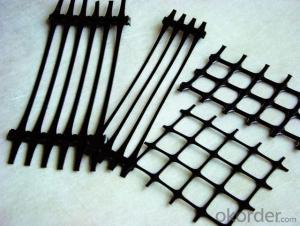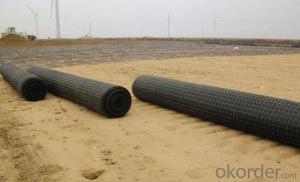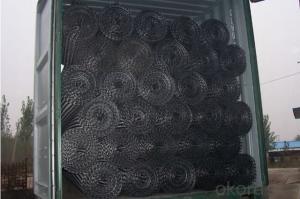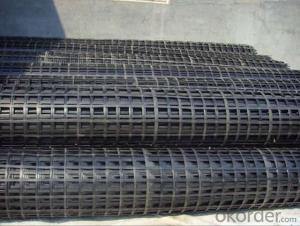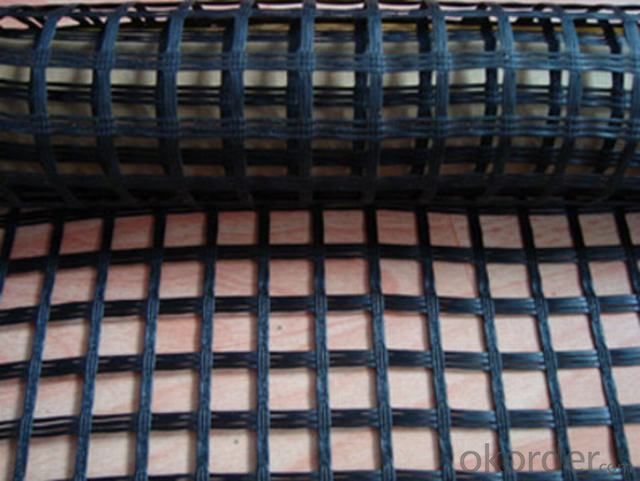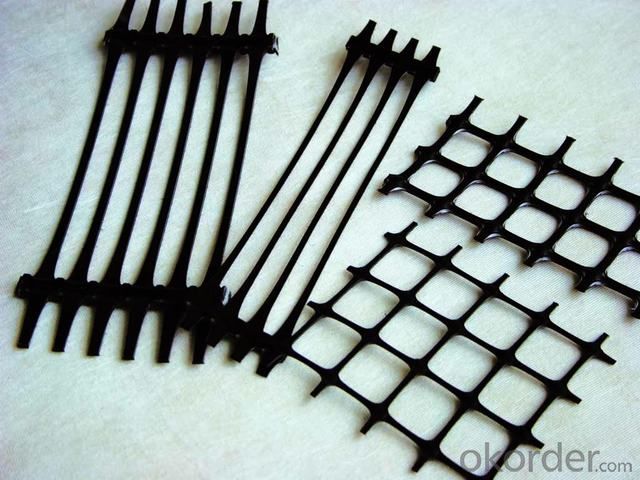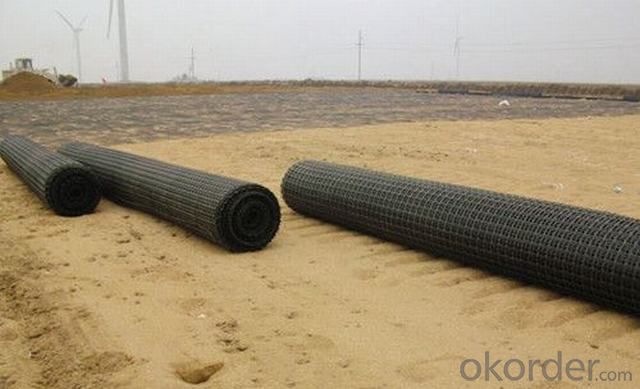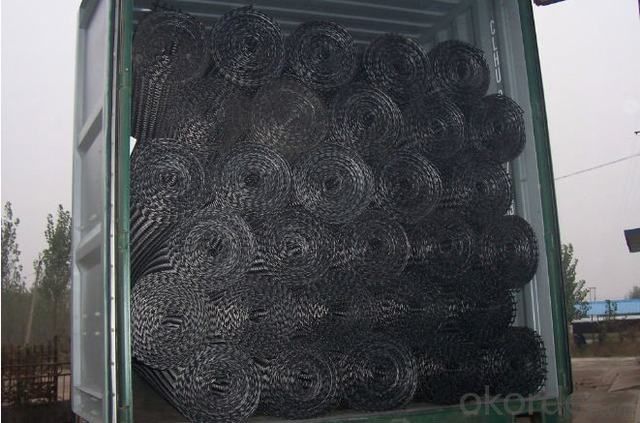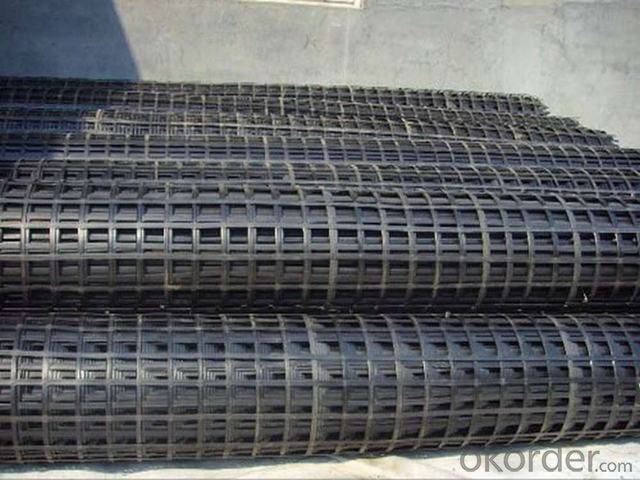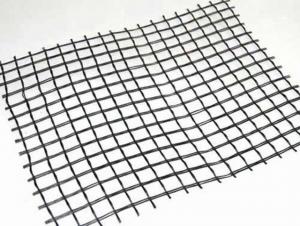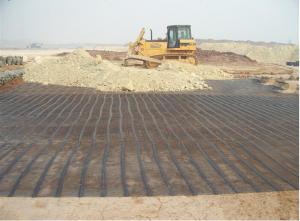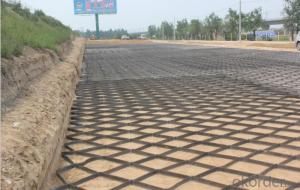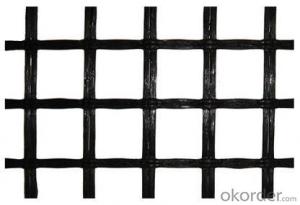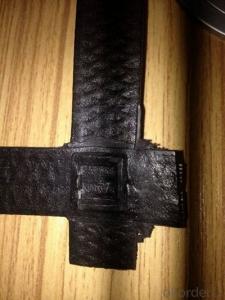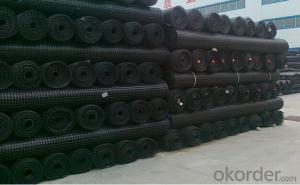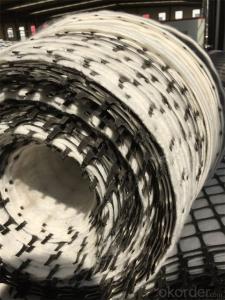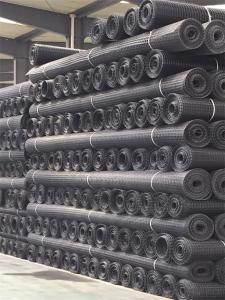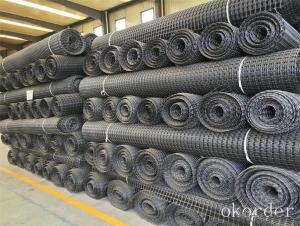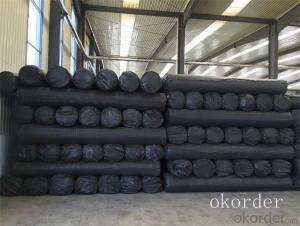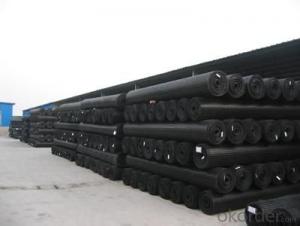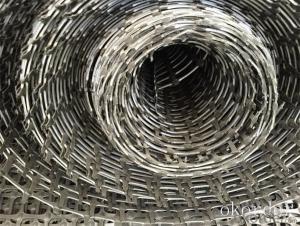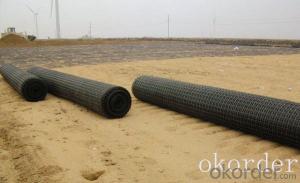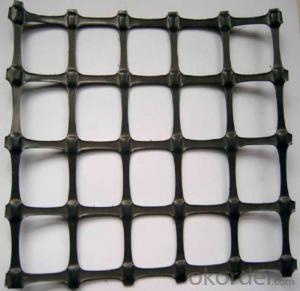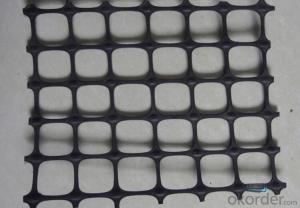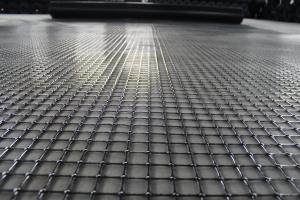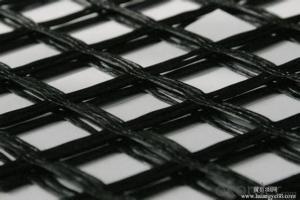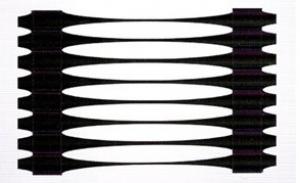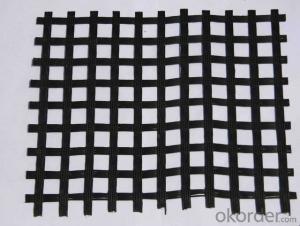Flexible HDPE Uniaxial Geogrid Supplier from China
- Loading Port:
- Qingdao
- Payment Terms:
- TT or L/C
- Min Order Qty:
- 20000 m²
- Supply Capability:
- 10000000 m²/month
OKorder Service Pledge
OKorder Financial Service
You Might Also Like
HDPE Geogrid Introduction
HDPE geogrid a kind of geotechnical material with high strength that uses high molecule polymer as main raw material, adds certain ultraviolet proof and aging resistance agent and makes messy chain shape molecules have directional layout and from linear status by unidirectional extension. Plastic geotechnical grid makes directional tension under certain temperature condition, tension resistance reaches 100-200 MPa, yield elongation rate is only 4%-10%, it is near to the level of low carbon steel and much better than traditional or current reinforcement materials, and is very ideal synthetic material for strengthening and reinforcement of civil projects.
HDPE Geogrid Features
1.High unidirectional tension resistance, good creep resistance and stable chemical nature.
2.hdpe geogrid has large friction factor with sandy stone.
HDPE Geogrid Application Range
1.It is mainly used in retaining wall, bridge abutment, steep slope project and so on.
2.Retaining wall and bridge abutment belong to force bearing structures and bear all external loads such as active soil pressure, support of structure upper part and temperature stress. Under the function of large tension and repeated function of dynamic load, molecule structure of reinforcement material occurs fatigue, its performance occurs attenuation and aging of grid quickens. In order to avoid large deformation of structure caused by creep of reinforcement material, unidirectional geotechnical grid with high-density polyethylene (HDPE) as raw material shall be used.
Fiberglass Geogrid Detail Specifications
Item | 50 | 80 | 120 | 140 | 160 | 170 | 200 |
Vertical Tensile Strength (KN/m) ≥ | 50 | 80 | 120 | 140 | 160 | 170 | 200 |
elongation ration(%)≤ | 11.5 | ||||||
Tensile Strength at 2% elongation (KN/m) ≥ | 12 | 21 | 33 | 38 | 47 | 49 | 58 |
Tensile Strength at 5% elongation (KN/m) ≥ | 23 | 40 | 65 | 75 | 93 | 98 | 115 |
Length (m) | 50 | ||||||
Width (m) | 1.0/1.1 | ||||||
Product Photos
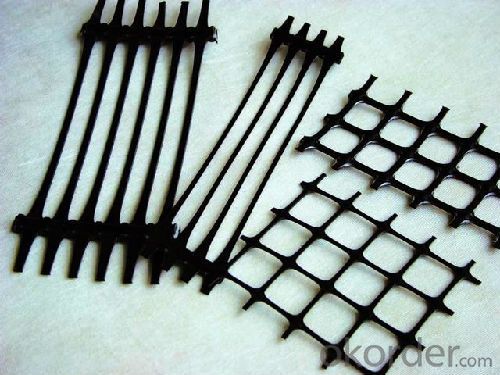
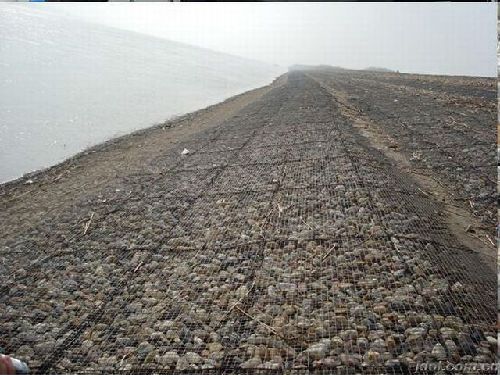
- Q: What is the role of Geogrid
- Paving the role of geogrid:1, geogrid used to increase the road (ground) bearing capacity of the foundation, Yan Changlu (ground) based service life.2, geogrid used to prevent the road (ground) surface collapse or crack, keep the ground beautiful and tidy.
- Q: Can geogrids be used in landfill capping systems?
- Yes, geogrids can be used in landfill capping systems. Geogrids are often used as reinforcement materials in landfill capping systems to enhance stability, prevent erosion, and provide long-term support for the capping layer. They are placed between layers of soil or other materials to improve the overall performance and effectiveness of the landfill capping system.
- Q: What are the typical applications of geogrids in geotechnical engineering?
- Geogrids are commonly used in geotechnical engineering for various applications such as soil reinforcement, slope stabilization, retaining wall construction, and pavement reinforcement.
- Q: What is the typical thickness of a geogrid?
- The typical thickness of a geogrid can vary depending on its intended use, but it typically ranges from 0.5 to 3 millimeters.
- Q: How do geogrids compare to other soil reinforcement methods?
- Geogrids are a highly effective soil reinforcement method that offer several advantages over other methods. They provide excellent tensile strength, allowing them to distribute loads and restrain soil movement effectively. Unlike traditional methods like soil nails or ground anchors, geogrids can be installed quickly and easily, reducing construction time and costs. Additionally, geogrids are resistant to chemical and biological degradation, making them a durable and long-lasting solution. Overall, geogrids offer superior performance, cost-effectiveness, and ease of installation compared to other soil reinforcement methods.
- Q: Can geogrids be used in underground tunnels?
- Yes, geogrids can be used in underground tunnels. Geogrids are commonly used in tunnel construction to reinforce the soil and provide stability to the tunnel walls. They help in preventing soil erosion and maintaining the overall structural integrity of the tunnel.
- Q: What are the benefits of using geogrids in roadways?
- Geogrids offer several benefits in roadways, including improved stability and load-bearing capacity, reduced material and construction costs, increased service life of the road, and enhanced resistance to deformation and cracking. Additionally, geogrids help in preventing the lateral spreading of soil and aggregate, minimizing rutting and pavement deterioration, and providing reinforcement to weak or poor quality soils.
- Q: What are the factors that affect the installation and survivability of geogrids in cold climates?
- The factors that affect the installation and survivability of geogrids in cold climates include the type and quality of geogrid material, proper preparation of the subgrade, adequate compaction of the soil, temperature variations, frost heave, snow accumulation, and freeze-thaw cycles.
- Q: Is the test items within the inspection listAcceptance specification
- Lower bearing layer smoothness
- Q: Are geogrids suitable for use in mechanically stabilized retaining walls?
- Yes, geogrids are suitable for use in mechanically stabilized retaining walls. Geogrids provide reinforcement to the soil and improve its stability, preventing potential failures and reducing the overall cost of construction. They enhance the load-bearing capacity of the soil behind the retaining wall, making it a reliable solution for various engineering applications.
1. Manufacturer Overview
| Location | Shandong, China |
| Year Established | 2002 |
| Annual Output Value | Above US$ 20 Million |
| Main Markets | 20.00% North America 15.00% South America 15.00% Eastern Europe 10.00% Southeast Asia 10.00% Northern Europe 10.00% South Asia 10.00% Western Europe 5.00% Africa 5.00% Mid East |
| Company Certifications | ISO9001:2000; |
2. Manufacturer Certificates
| a) Certification Name | |
| Range | |
| Reference | |
| Validity Period |
3. Manufacturer Capability
| a) Trade Capacity | |
| Nearest Port | Qingdao Port |
| Export Percentage | 41% - 50% |
| No.of Employees in Trade Department | 6-10 People |
| Language Spoken: | English; Chinese; |
| b) Factory Information | |
| Factory Size: | Above 80,000 square meters |
| No. of Production Lines | Above 10 |
| Contract Manufacturing | Design Service Offered; Buyer Label Offered |
| Product Price Range | High; Average |
Send your message to us
Flexible HDPE Uniaxial Geogrid Supplier from China
- Loading Port:
- Qingdao
- Payment Terms:
- TT or L/C
- Min Order Qty:
- 20000 m²
- Supply Capability:
- 10000000 m²/month
OKorder Service Pledge
OKorder Financial Service
Similar products
Hot products
Hot Searches
Related keywords
